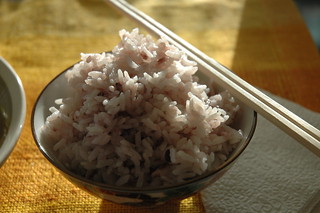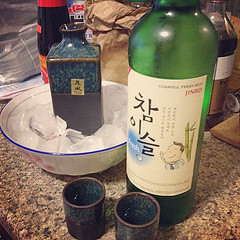South Korean Cultural Rules: 5 Important Dos

All seasoned wayfarers know that the art of living like the locals isn’t built solely on the constituent of what gestures and words to avoid. These veterans are able to adopt certain rules and gestures just as well as they avoid those that would offend. The first part of this post gave a glimpse into what to avoid doing in South Korea. This second part will offer 5 gestures to do while traveling in South Korea. Practicing any of the following below will surely be met with appreciation by native Koreans.
1. Place Chopsticks To The Side Of The Rice Bowl When They Are Not In Use
At any typical Korean meal, it is common for soups to accompany the main dish of rice. Unlike America where a soup would be served before a main dish, Korea prefers to spread all dishes out on the table at once. Long, metal soup spoons and a set of chopsticks are given to diners to switch from nibbling rice to sipping soup effortlessly. It’s very convenient, but one thing to watch out for is where you put your chopsticks when you decide to switch to your soup spoon. Always make sure chopsticks rest either horizontally over your bowl or on the table, which is perfectly acceptable. Never let chopsticks rest shoved into rice. This is a gesture that symbolizes death.
2. Offer And Accept Items With Two Hands
It is considered polite in Korea to offer and receive items with both hands. There are two ways one can show respect. The first is taking the object being given or received in both hands, or you can hold the object in your right hand while bringing in your left arm to point at your right elbow. While important to keep this gesture in mind, this rule isn’t a strict do. For common or diminutive transactions like passing a colleague hand sanitizer, it’s ok to hand it over with your right. If you aren’t sure whether the setting calls for this formality, it’s better to be safe than sorry. Go ahead and tuck that left arm.

It’s customary for new employees to celebrate receiving their first paycheck by buying small gifts for all their co-workers. Although your Korean colleagues won’t expect you to follow their work traditions, they’ll really appreciate the effort put forth. Nothing too extravagant or expensive needs to be spent. A few common gifts are pastries, fruit, or small trinkets like keychains.
4. Accept Invitations To Office Dinners, Drinks, And Parties
Team building events in western offices are nothing compared to office outings in Korea. From holidays to random weekdays, your boss will treat the staff to dinners and drinks quite often. As wonderful as this sounds, the invitations for staff dinners are usually passed out mere hours before they are expected to start. While your fellow employees will understand if you already have plans, it really does build a sense of camaraderie when all employees attend. You might also be surprised just how much fun can go on at these dinners. These gatherings are a far cry from formal. You’ll be happy to see your co-workers let loose with strong drinks and, if you’re lucky, karaoke sessions.
5. Learn The Rules And Culture Of Drinking Alcohol In Korea
In a country that is so rich in culture, you can bet that there is a certain etiquette to be followed when it comes to imbibing in Korea. Some are easy to remember, like never pour your own drink. Some, however, are so subtle that they can slip your mind, especially once that alcohol starts to flow and floods your brain. I find that the most difficult drinking rule to remember is remembering to keep your glass lower than the elders’ glasses when clinking glasses together for a cheers. The seemingly small rules will get easier to remember the more office dinners you attend. If you do find your brain blanking during a night out, don’t worry. Your co-workers will be understanding.
For those living in Korea, are there any other dos you would add to the list? Help out future expats by sharing your experiences in a comment below!







